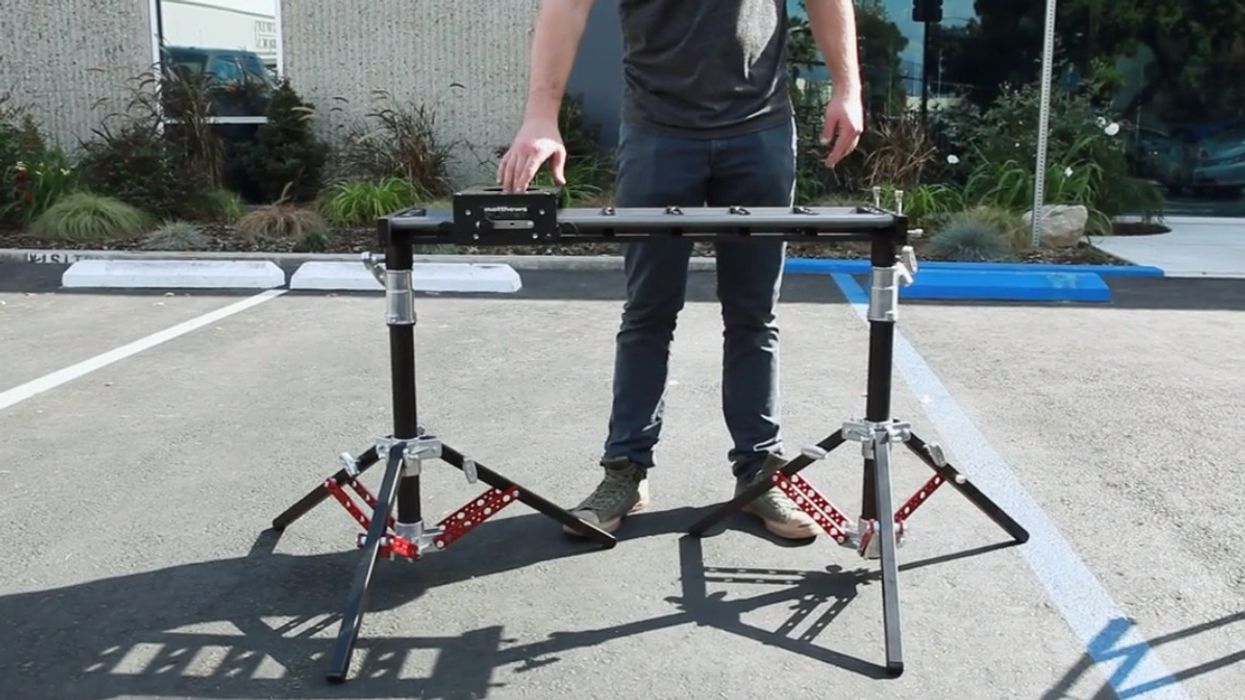Matthews Now Has a Stand Designed Specifically for Sliders

Matthews has new stands that were designed with sliders in mind. If you're using heavier cameras and heavy-duty sliders like the Dana Dolly or even Matthews' own slider, you need something supporting the whole rig at both ends. While you could use a smaller C-stand, the Matthews Slider Stand has a built-in Junior Receiver and is made to be more stable and versatile, allowing you to level easier with two rocky mountain legs. Here is the introduction video, followed by a demonstration of the stand:
Some info on the stand:
The Slider Stand meets the demand for a strong, wide-based stand with a low working height for those using camera sliders and Speed Rail/Pipe Dolly Systems like the Dana Dolly. Baby Ballhead (3/8") Adapter, Magic Finger and Stand/Spud Adapter sold separately.
The Slider Stand comes standard with two rocky mountain legs for easy leveling on hills, mountainsides, rocky environments, stairs and most other uneven terrain. As a comparison, the Slider Stand minimum working height measures one foot (30cm) lower than the standard low boy combo, giving the camera operator a POV range from hip to eye level.
And the specs:
- Comes with Welded Junior (1-1/8") Receiver
- Adapters Include Baby Ball Head, Magic Finger with 5/8" Adapter, and Stand/SPUD Adapter 1-1/8" to 5/8"
- Collapsed Height: 25" (64cm)
- Weight: 14 lbs.
- Capacity: 80 lbss (36kg)
- Maximum Height: 46" (117cm)
- Minimum Height: 24" (61cm)
- Footprint: 37" (94cm)
Even though it is being marketed as a slider stand, it can obviously be used as a low boy junior, and with adapters can mount virtually anything in a low configuration:
This is made for heavy-duty rigs, and it has a price to match those more expensive rigs. While it's probably a cheap rental and may even be included with something like a Dana Dolly kit, if you want to own some for yourself, the stand is going for $286 on B&H (it's a little more directly from Matthews), with the adapters ranging in price. For more on the Slider Stand and adapters, check out the Matthews site.
Links:
- Matthews Slider Stand -- B&H
- Matthews Slider Stand -- Matthews Studio Equipment












